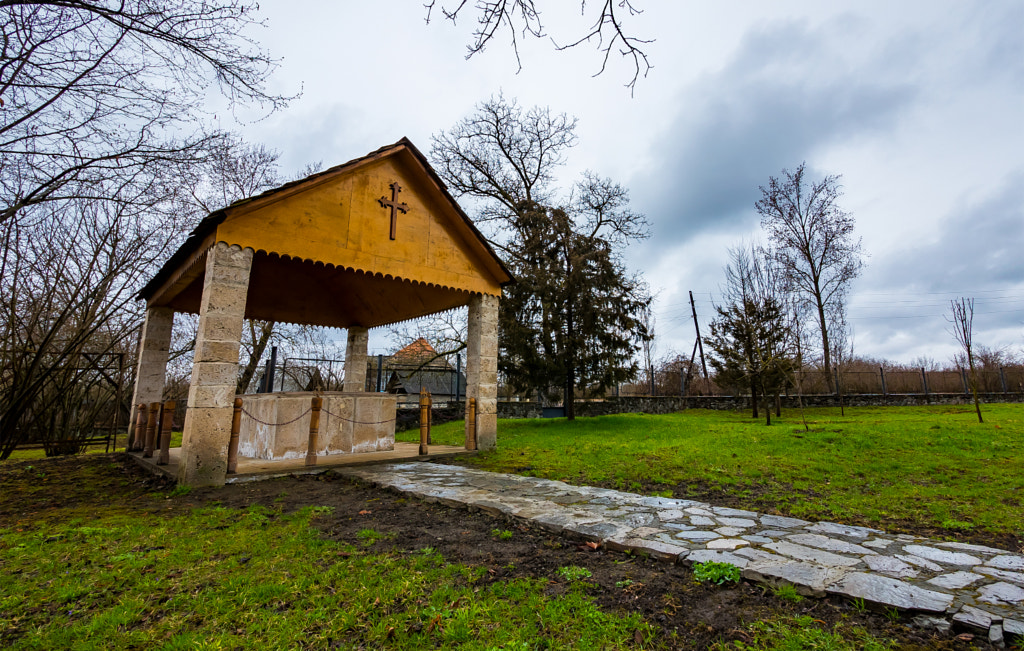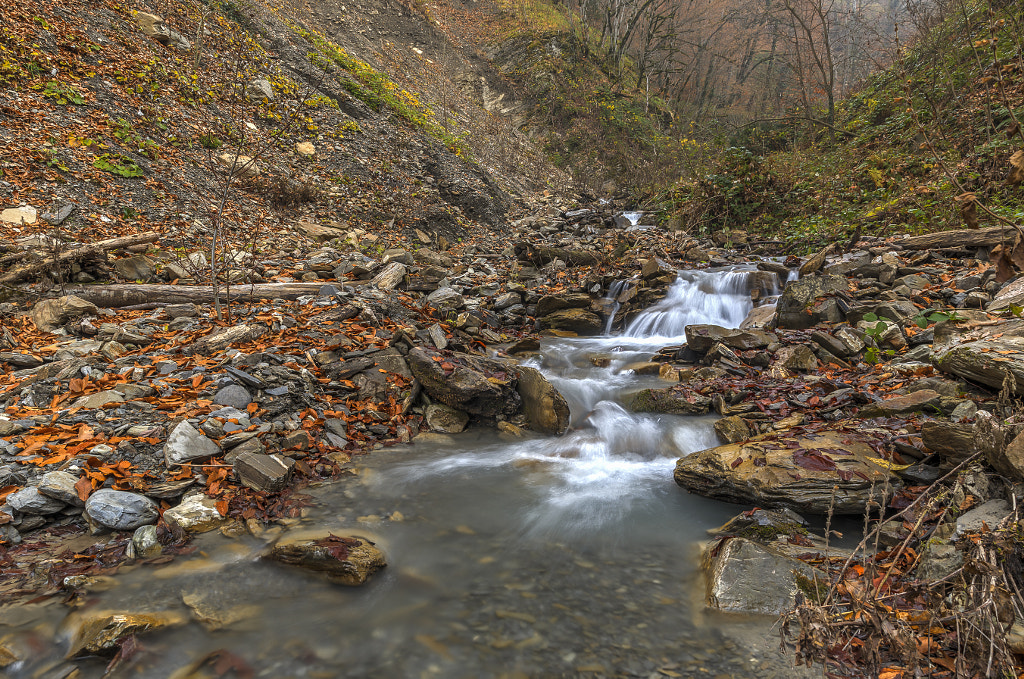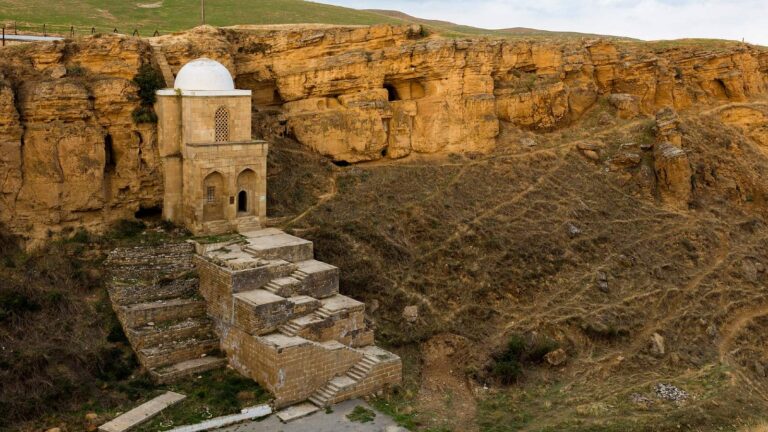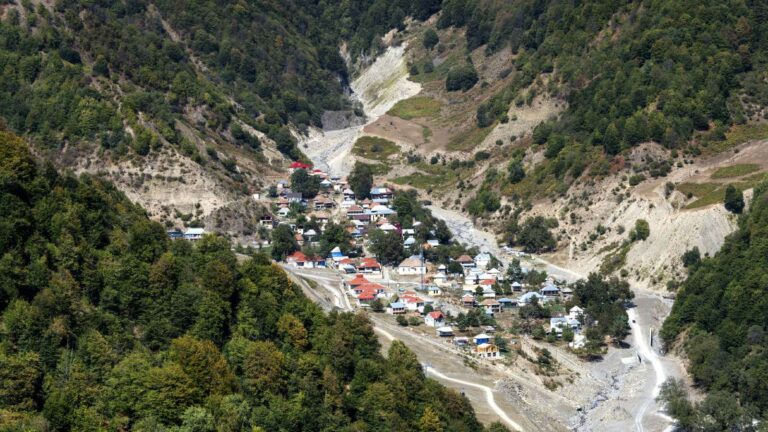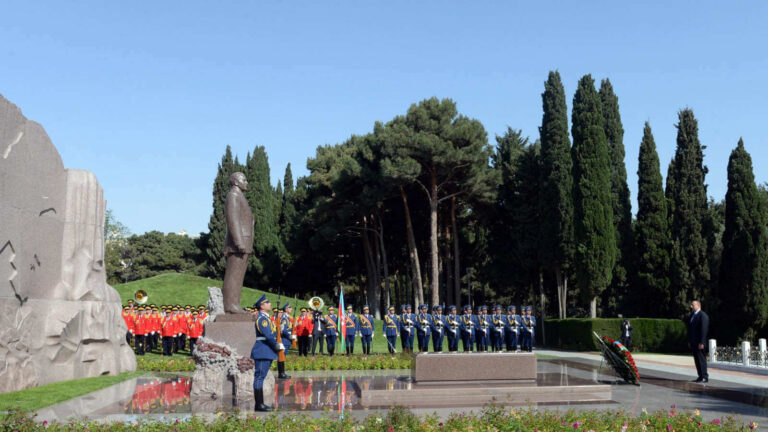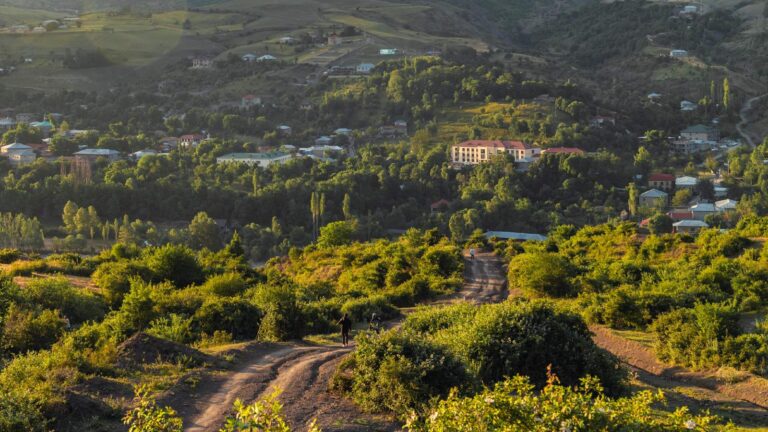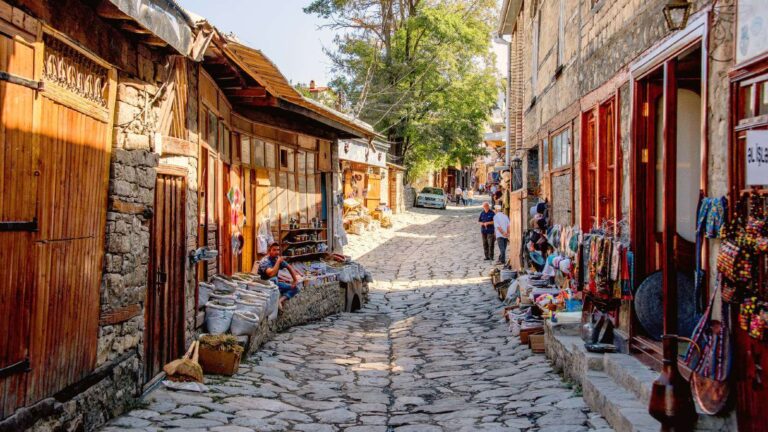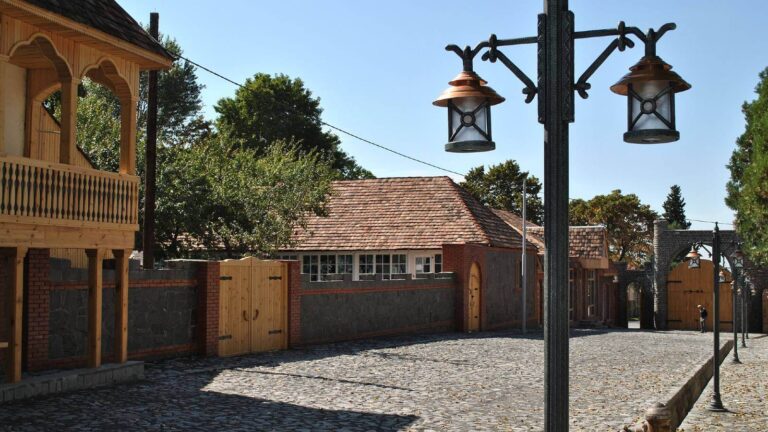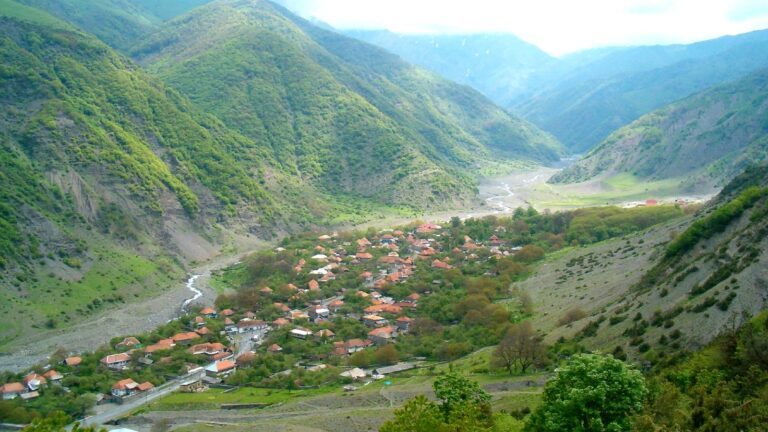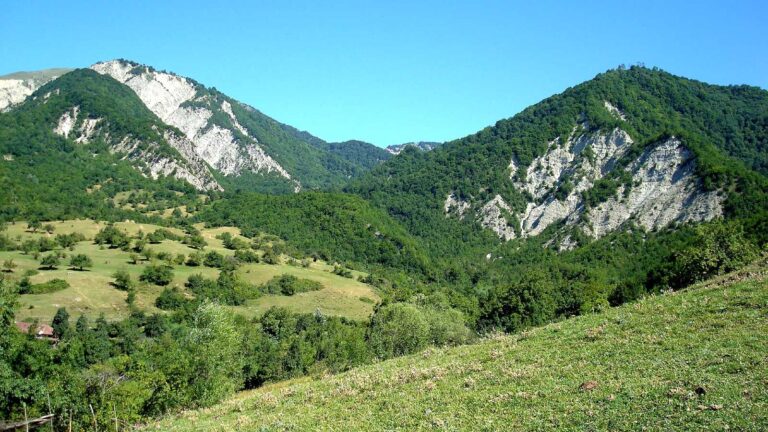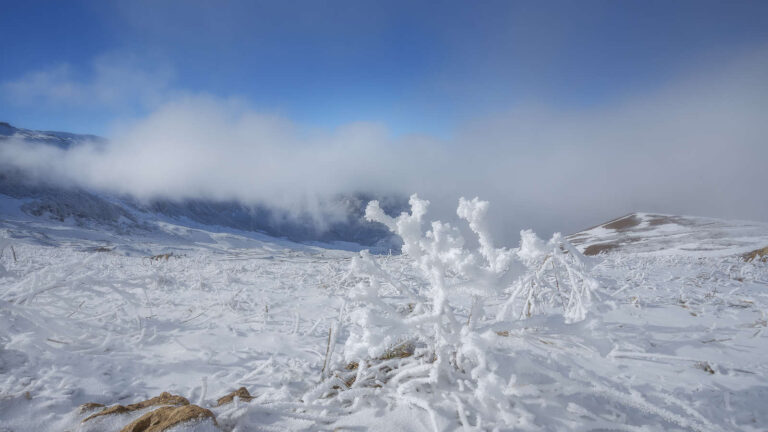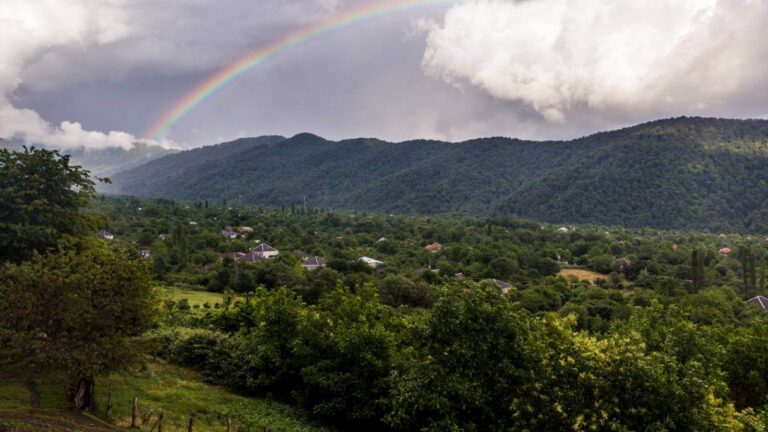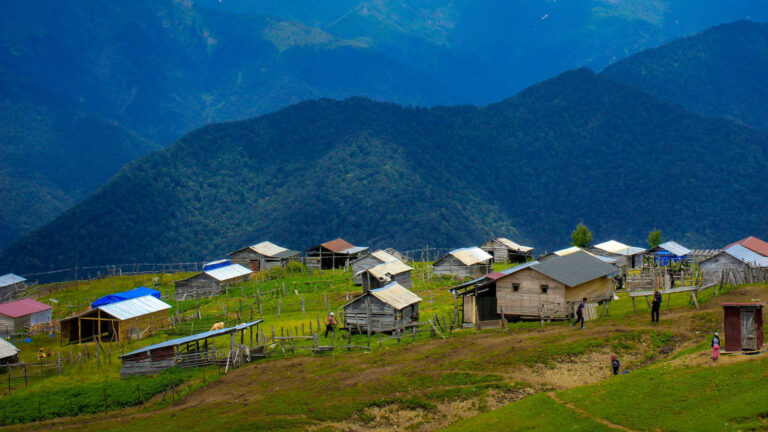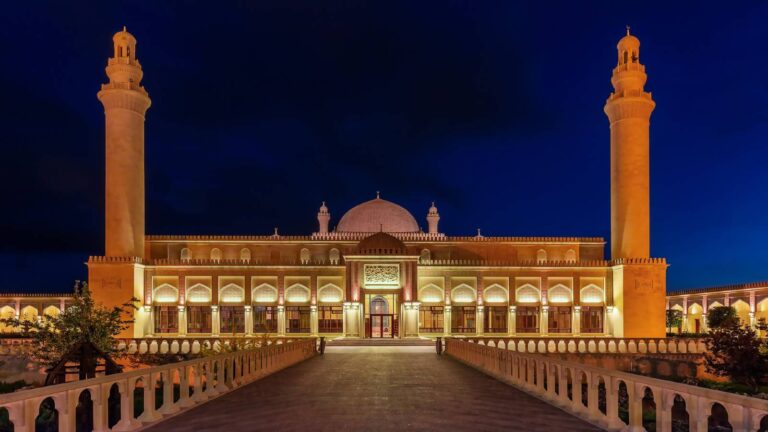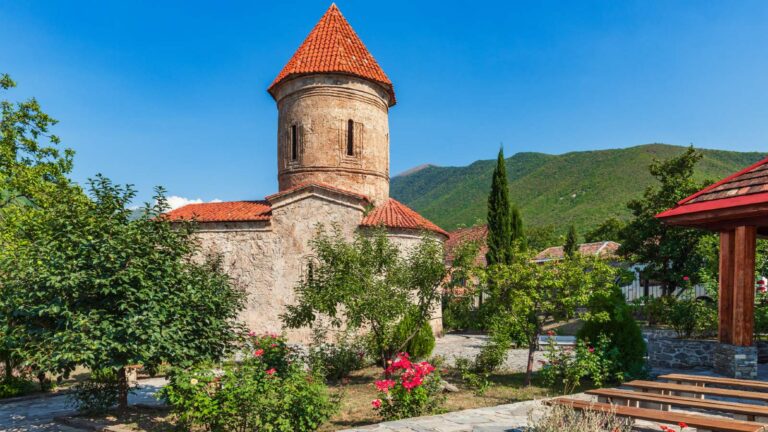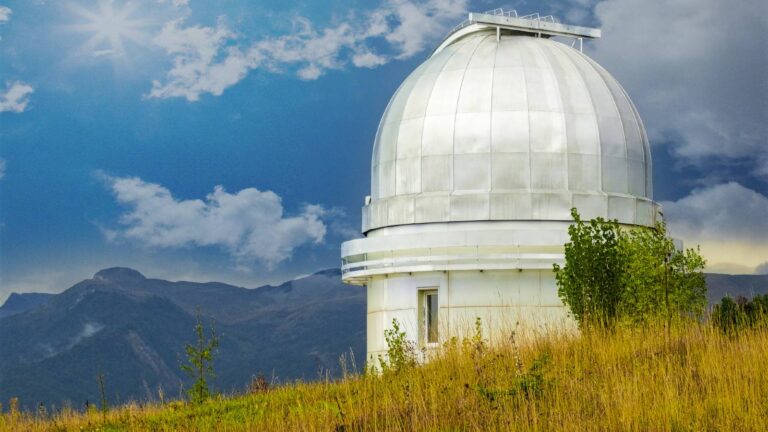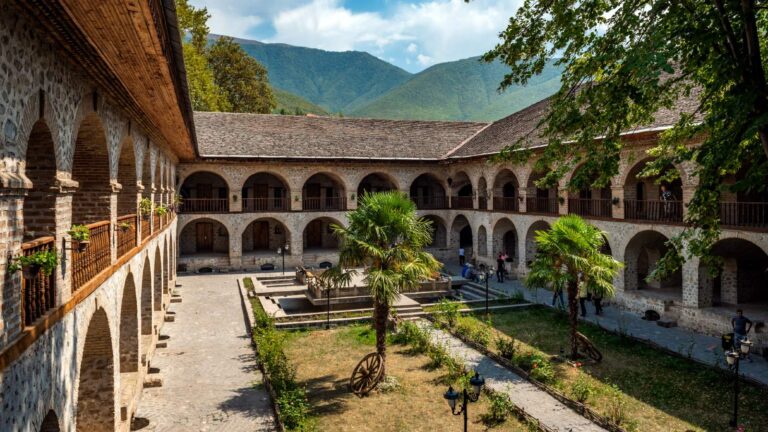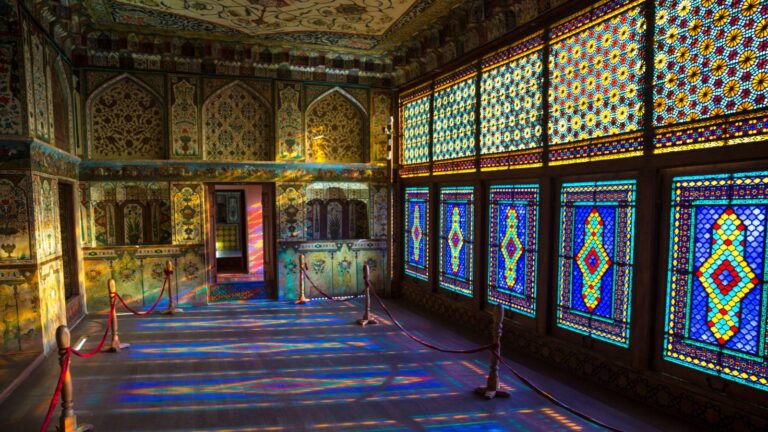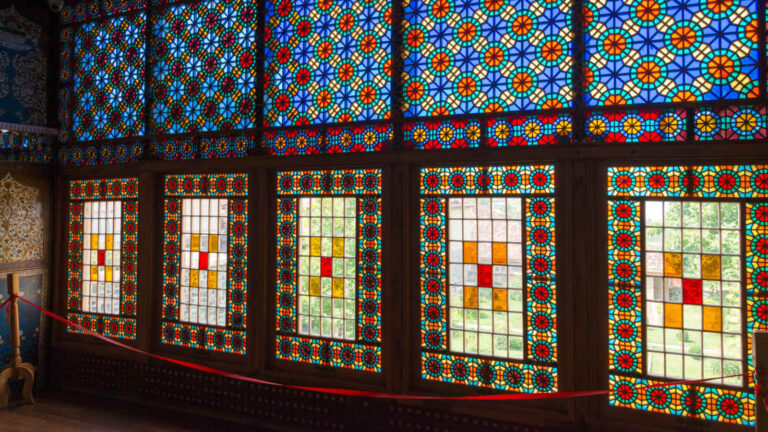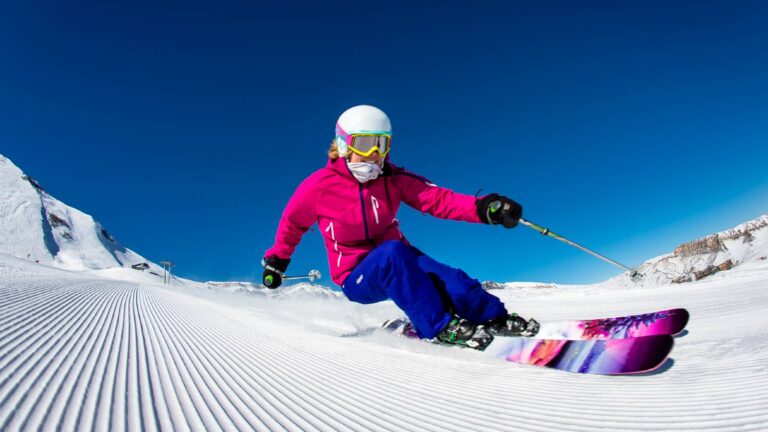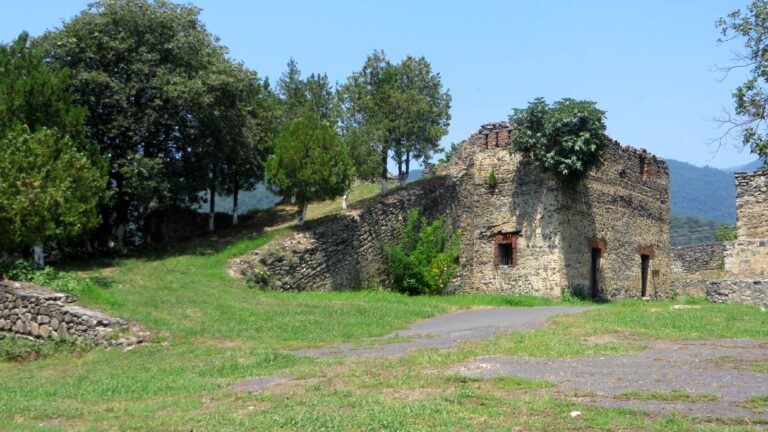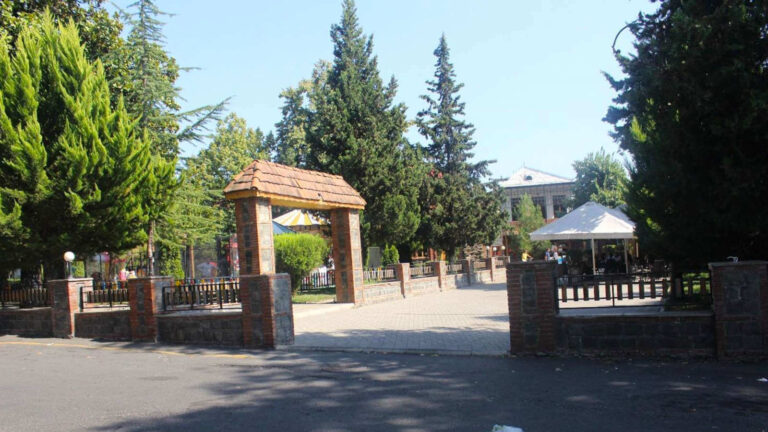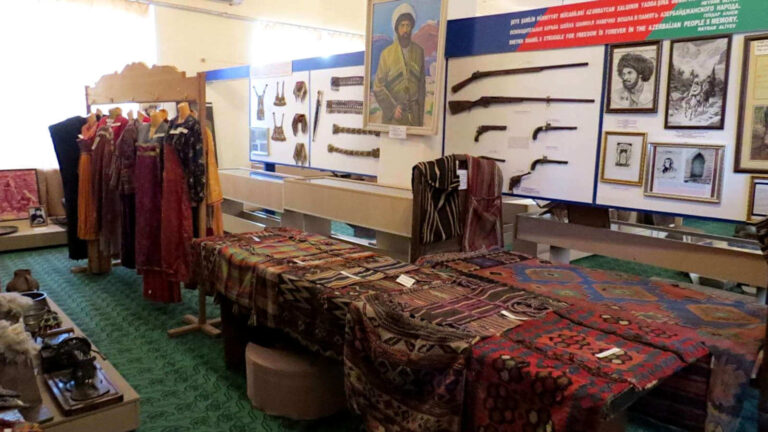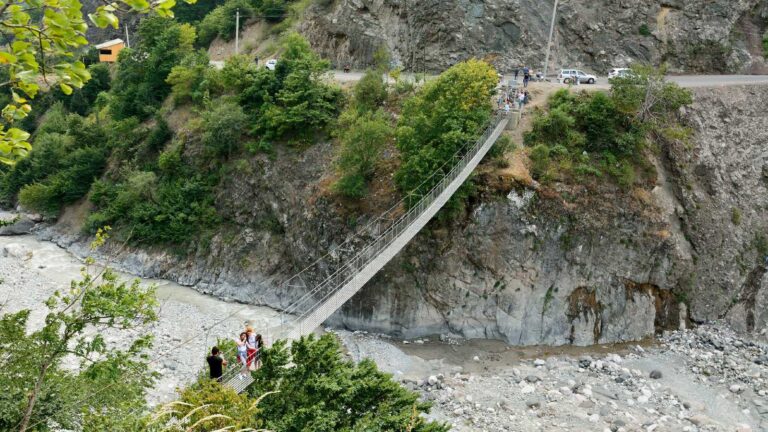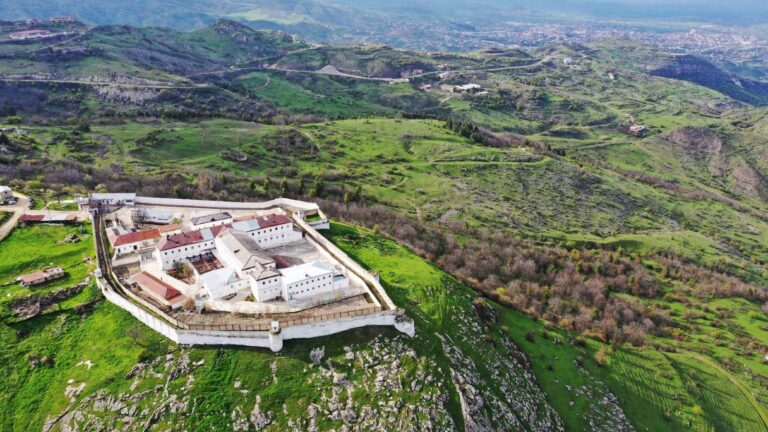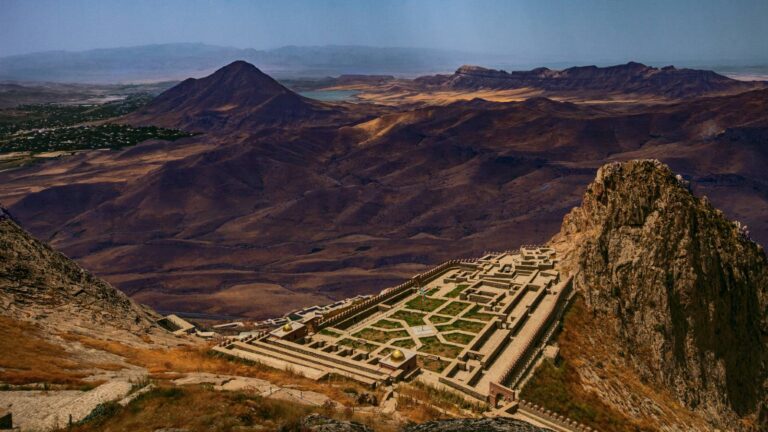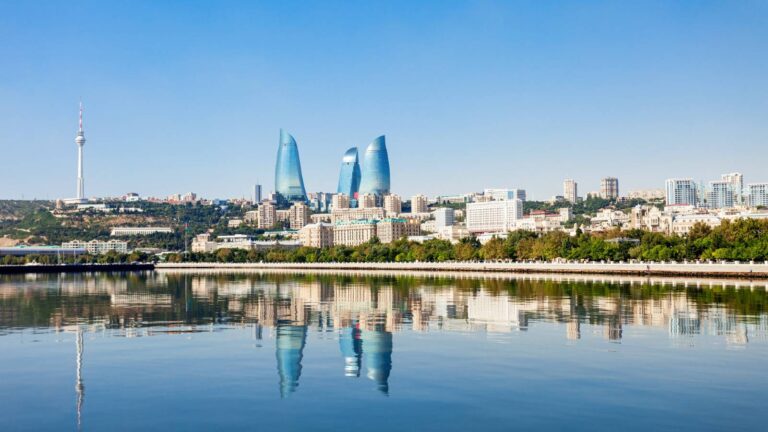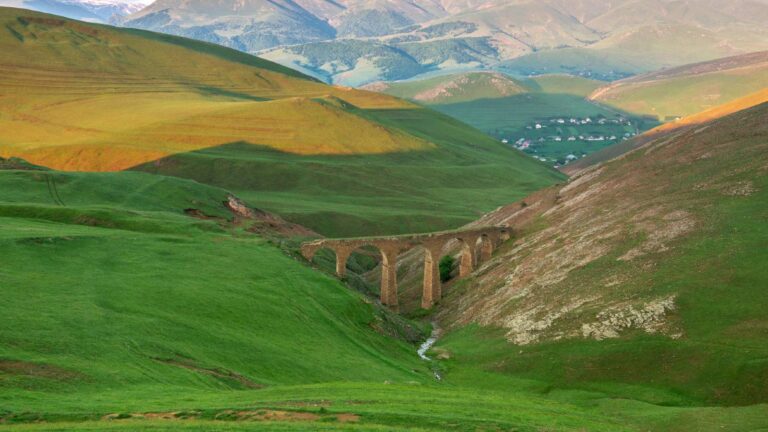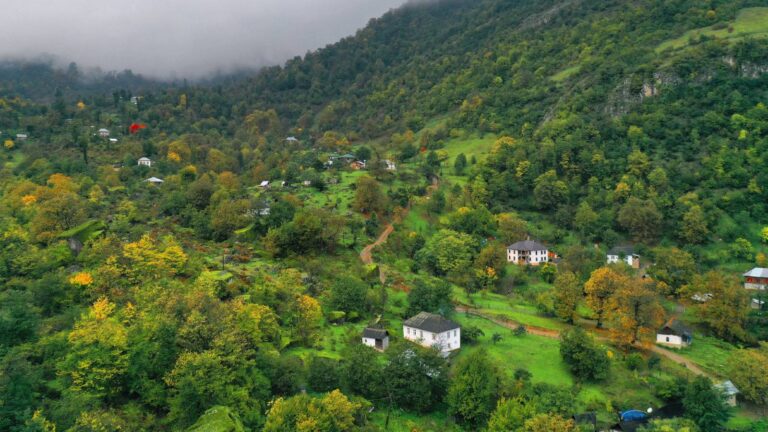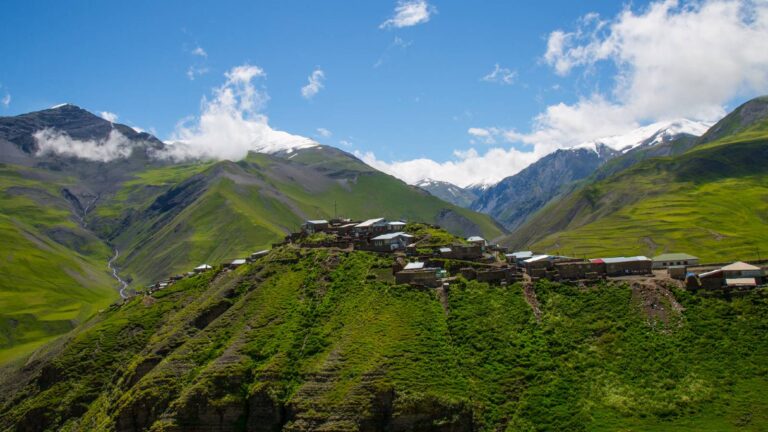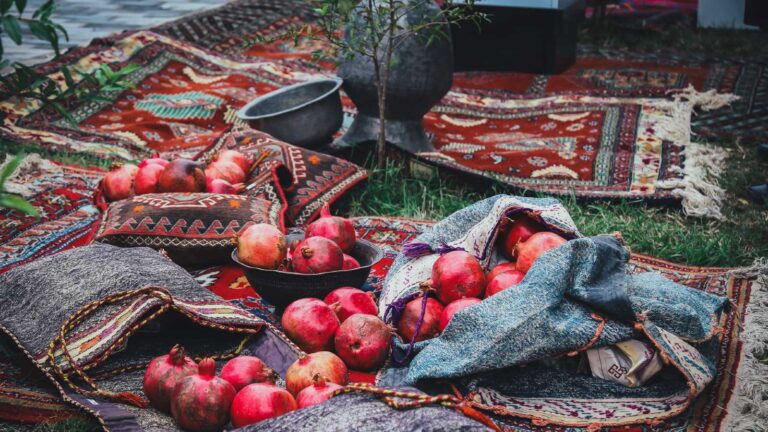There are international airports in Gabala and Zagatala.
A main highway runs from Baku through the region. Daily buses leave from Baku’s International Bus Station and stop in all major towns and cities. Taxis and shared cars are also readily available.
Trains also depart to and from Tbilisi (Georgia) every day, stopping in Zagatala, Gakh and Sheki.
The Greater Caucasus Mountains provide opportunities for hiking, especially in the Shahdag National Park in the Ismayilli and Shamakhi regions. There are excellent marked routes in Sheki, Gakh and Zagatala.
The Gabala region is a hub of outdoor activities, from skiing and snowboarding in winter at Tufandag Mountain Resort to rafting, shooting, and jeep drives in the warmer months. For something different, you can visit the village of Nij, home to an ancient Christian ethnic group called the Udis. And there are plenty of great resorts in Gabala to relax and boost your health at.
Once an important stop on the legendary Silk Road, charming Sheki is a true Azerbaijani travel gem whose old town area is a UNESCO World Heritage site. The city is famed for its unique crafts practiced here since the days of the Silk Road. There are many museums, atmospheric local restaurants and cosy hotels and guesthouses.
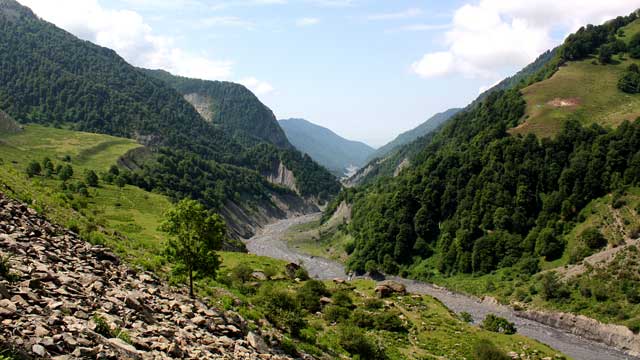
Damiraparan river, Gabala 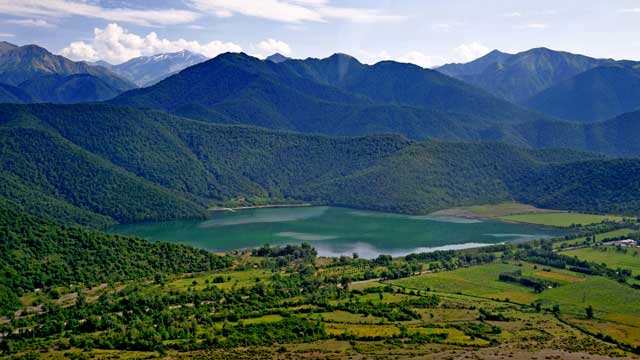
Nohur lake, Gabala 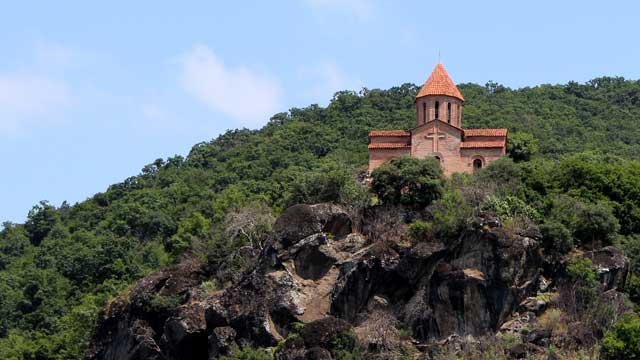
Kurmuk church, Gakh 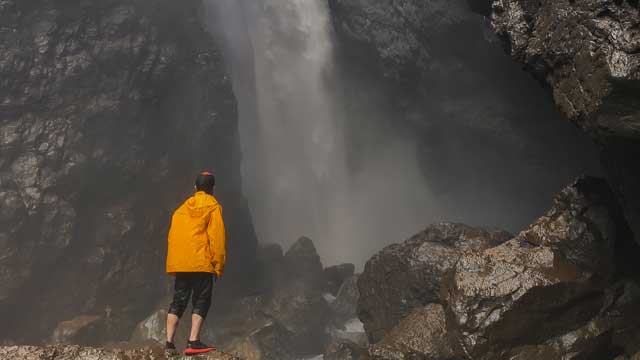
Ganslar waterfall in Jimjimakh village, Zagatala 
Lahij shops
The combination of the Greater Caucasus Mountains and Alazan Valley make the scenery in the far north-west particularly special, and there are some great waterfalls, notably Ram-Rama and Mamirli.
The local cuisine is also special with many dishes specific to this region which you can try at local restaurants both in cities and the countryside. This is also one of the main areas for winemaking in Azerbaijan.
Shamakhi was once the capital of Shirvan, a state ruled by the Shirvanshah dynasty in medieval times, and the ruins of several of their fortresses are scattered across the mountainous landscape. History hunters should also visit the Yeddi Gumbaz (Seven Domes) cemetery complex and Juma Mosque, which is Azerbaijan’s oldest mosque originally built back in 743 AD.
Further west, don’t miss the ruins of the ancient city of Gabala – a major trade and social hub along the Silk Road between about 4 BC and 18 AD and once the capital of the ancient state of Caucasian Albania – in the village of Chukhur Gabala, 15 kilometres south-west of Gabala. A contemporary museum tells you all you need to know about the site’s history.
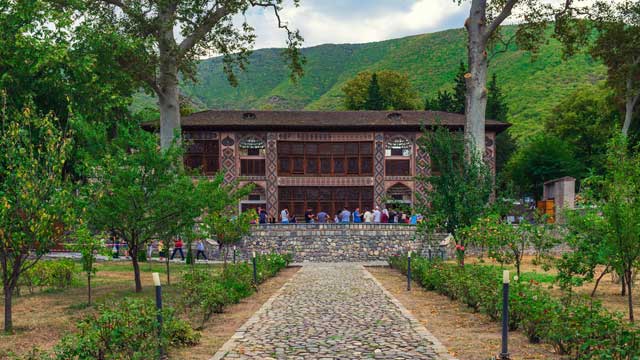
Sheki Khans’ Palace 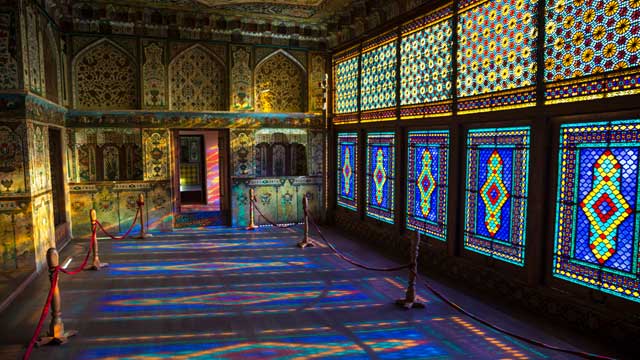
Sheki Khans’ Palace 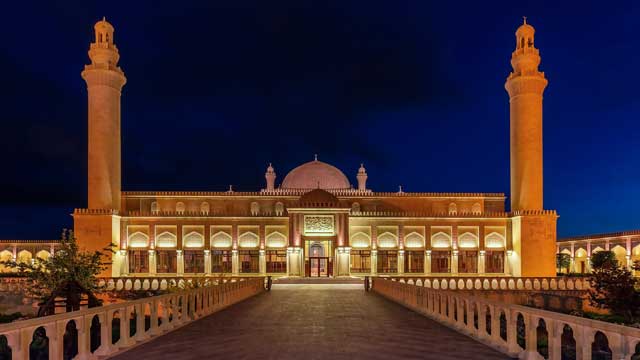
Juma mosque, Shamakhi
North-west Azerbaijan has had an eventful history, the traces of which can be seen in numerous landmarks scattered throughout the picturesque countryside. In terms of fortresses, the most complete is Sheki Fortress, part of the city’s UNESCO-protected old town whose pièce de résistance is the exquisite Sheki Khan’s Palace, a gem of 18th-century Azerbaijani architecture. In Ilisu in Gakh several towers and an arch bridge recall a time when this historic village was the capital of a small independent sultanate.
You can also explore the heritage of Caucasian Albania, an ancient state existing here until about the 8th century AD.
Crafts
The mountain village of Lahij is famed in Azerbaijan for its craft traditions, in particular coppersmithing, an intangible cultural element of Azerbaijan which is protected by UNESCO. Strolling along the central cobblestone street here you’ll still hear the clashing of hammer on metal.
Gastronomy
Sheki is one of the craft centres of Azerbaijan and a hub of creative activity. Its local cuisine is also special: Sheki is famed for a dish called piti – a hearty mutton meal with chickpeas, chestnuts, saffron and spices – as well as a local variety of pakhlava called Sheki halva, which you can try in the colourful sweetshops dotted around town. Meanwhile, Gakh’s cuisine is noteworthy for its use of dried meat in dishes like surhullu.
Events
Several noteworthy festivals are held in the region. Each summer Gabala city hosts the very popular week-long Gabala Music Festival, featuring mainly classical music but also jazz and Azerbaijani mugham – a UNESCO-listed folk genre – all happening to a backdrop of the splendid Caucasus Mountains.
In summer Sheki hosts the Silk Way International Music Festival (interrupted by the pandemic) which brings together music and dance collectives from a range of countries, many of them Turkic. In autumn, a Nut Festival and Persimmon Festival take place in Zagatala and Balakan respectively.
This region consists of the Greater Caucasus Mountains, its foothills and surrounding lowlands. There is an abundance of mixed broad-leaved forests, valleys, waterfalls and rivers flowing down from the mountains. The mountainous zones are rich in mineral waters which are used in treatments at resorts in the region, in Gabala especially. Generally speaking, highland areas remain cool and fresh while it’s much warmer and more humid in the lowlands. In colder months the mountains and foothills are covered in snow.
The Shahdag National Park covers mountainous parts of Shamakhi, Ismayilli, Gabala and Oghuz. State nature reserves exist in Ilisu and Zagatala to protect areas particularly rich in forest and alpine ecosystems which are home to rare animals like the East Caucasian tur, chamois, brown bear, Caucasian snowcock and Caucasian black grouse.
Agriculture is widely practised throughout the region, especially grain growing, viticulture and livestock farming. Tobacco and tea are also grown here, and the region is a major producer of high-quality hazelnuts. Viticulture is fast developing and there are excellent wineries in Shamakhi, Ismayilli, Gabala and Sheki. A variety of crafts, including metal goods and carpets, are produced in Ismayilli and Shamakhi, and Sheki and Gabala especially are popular tourist destinations.

